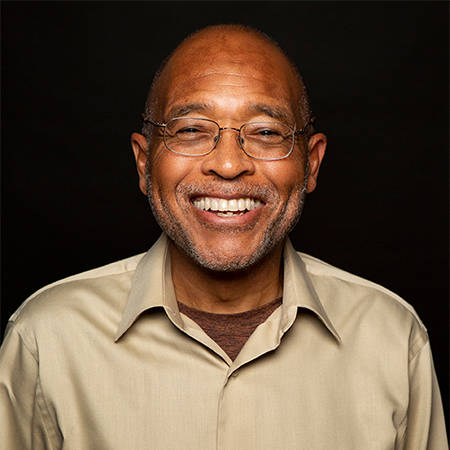Submitted by The Lopez Island Library
The Lopez Island Library invites you to save the date for an upcoming public program at 6 p.m., Friday, Feb. 7 at the library with African-American humanities scholar, Clyde w. Ford.
Ford is a renowned author and speaker, currently a 2019/20 fellow of Humanities Washington, a Washington State affiliate of the National Endowment for the Arts. Ford conducts numerous programs around Washington state, focusing on how to have productive conversations about racism and racial healing. He will be traveling to all three of the San Juan Islands’ libraries in February to present his talk, “Dog-Whistles and Cat-Calls: The Modern Signs, Symbols, and Signals of Hate.”
Most are familiar with racist epithets, such as the “N” word, or hateful symbols, such as a swastika. But few are aware of the extensive lexicon of modern signs, symbols and signals of hate that exist within various subcultures in the United States and around the world. In this informative presentation, Ford will examine the everyday symbols of hate that anyone may encounter in the news, on the internet or in the street. From hand gestures to tattoos to code-words, Ford discusses the historical and cultural significance of these signs and signals. His presentation, which lays bare the prevalence of hate-filled imagery in our culture, is meant to inform, heighten awareness and keep ordinary citizens safe.
In addition to his work as a teacher and speaker, Ford is the award-winning author of 12 works of fiction and non-fiction, and has been an active humanities scholar for over 30 years. His most recent book, “Think Black,” published in Sept. 2019, is a memoir about his father who was a hidden figure in the computer era and the first Black man hired as a software engineer at IBM in 1946. “Think Black” is an examination of a father-son relationship and an exploration of the slow change in race relations compared with the lightning speed of change in technology. Ford, like his father, is also a software engineer, as well as a psychotherapist and chiropractor based in Bellingham, Washington.
Ford is widely recognized for his writing about body-mind healing with a concentration on the healing of racial and psychic wounds. In 1989 he wrote his first book, “Where Healing Waters Meet,” about his many years of experience working with the healing of emotional wounds through touch and movement therapy. That was followed in 1993 by “Compassionate Touch,” a book which amplified these themes and documented Ford’s work with adult female survivors of abuse.
In 1994, Ford completed “We Can All Get Along: 50 Steps You Can Take to Help End Racism.”
“Racism is a social issue,” Ford explains. “It’s really not just African Americans’ place to deal with…We have in our history our own reckoning with that process. But the entire society needs to reckon with it as well.” In “We Can All Get Along,” Ford argues that individuals can make a difference.
“If we believe change is possible, then we can take the steps—however small they might be—toward making that change happen,” he said. Ford was an invited guest on the Oprah Winfrey Show in January 1994 for this book, which Oprah handed out to 20 people, encouraging them to try out the steps in the weeks before the show. Over the past 25 years, Ford has continued to publish and present on the interconnected issues of social and racial justice, collective healing, environmental activism and the power of creativity. He was named a “Literary Lion” by the King County Library System in 2006, 2007 and 2008. He was voted “Best Writer of Bellingham, Washington” in 2006 and 2007 by readers of the Cascadia Weekly, and he received the 2007 Bellingham, Washington, Mayor’s Arts Award in Literature. In addition to presenting at the Lopez Library on Friday, Feb. 7, Ford will be presenting at the Orcas Island Library on Saturday Feb. 8 and at San Juan Island Library in Friday Harbor on Sunday, Feb. 9.




